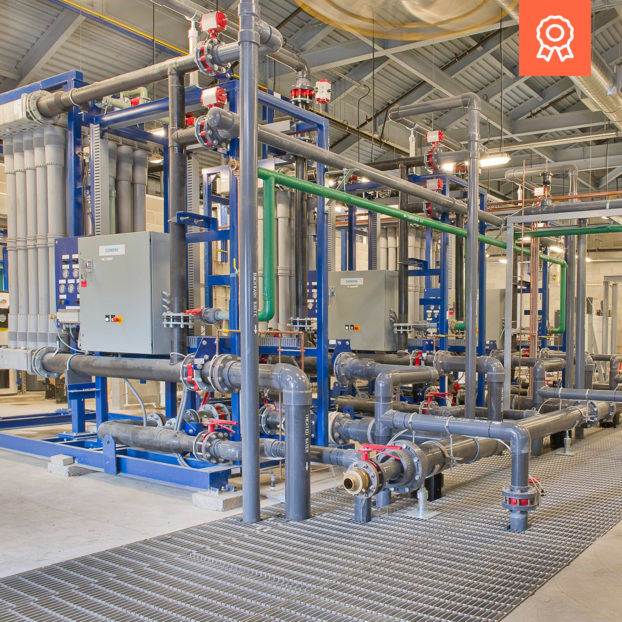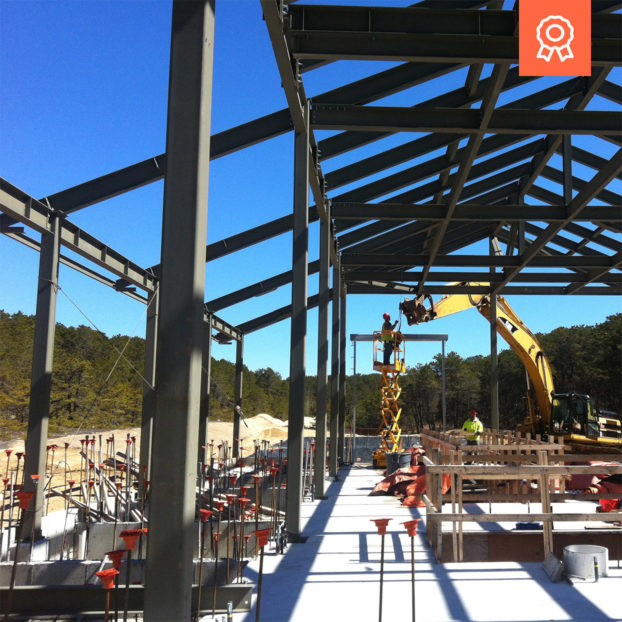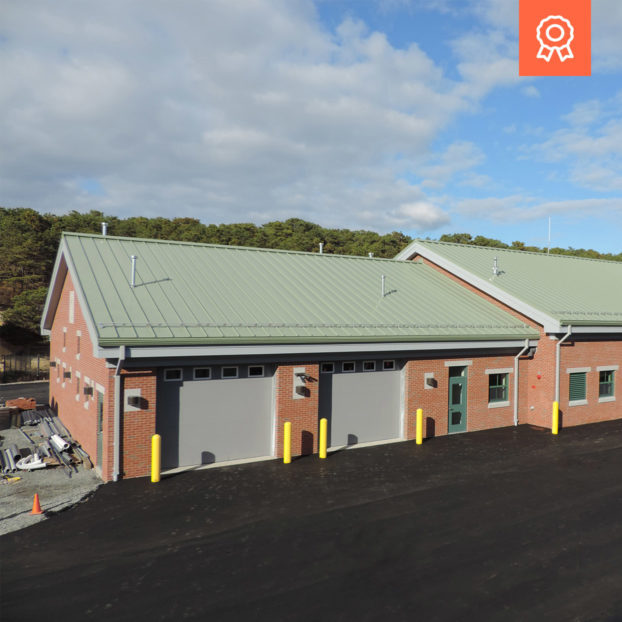The water system in Provincetown, MA dates back to approximately 1900. When the Town began to outgrow its shallow fresh water sources by the mid-1900’s, the Knowles Crossing and South Hollow well fields were developed. Both wellfields are located in the Town of Truro. The wellfields supply the entire town of Provincetown and a portion of Truro.
While these wellfields continued to be the primary sources for Provincetown’s water system, with the Knowles Crossing Wellfield facility consisting of three active groundwater wells and supplying approximately 21% of the annual water demand, the iron and manganese concentrations progressively increased to levels that, at times, exceeded Massachusetts drinking water standards. Sequestering and repeated flushing had been attempted, but ultimately proved ineffective as widespread precipitation and sedimentation of iron and manganese in the distribution system continued to increase every year. In addition, the extensive and prolonged flushing that was frequently required proved inefficient and costly. It became clear between 2008 and 2010 that a more direct and sustainable approach was needed, and Environmental Partners was retained by the Town to conduct pilot studies, feasibility analyses, and to provide design and construction services for a new, state-of-the-art water treatment plant.
Based on the results of this pilot program, EP was additionally retained by the Town in 2011 to complete essential planning and design engineering for a new 9,000 sq. ft. 1.25 MGD microfiltration membrane system, with a total construction cost of approximately $7M. A single, consolidated facility at Knowles Crossing wellfield was selected as the most economical, cost- effective, and centralized site for the new treatment plant. The existing facility had used a chemical feed, pH control, and sequestering to treat water with limited success. The recommended alterative was a microfiltration membrane system, as it is a proven modular technology for iron and manganese management.
The systematic planning and conceptual design of the membrane system included identifying and developing design criteria, process narratives and descriptions, and permitting requirements. Capital, operation, and maintenance opinion of probable costs, and a project schedule were also included. Site visits were completed to assess existing facilities, and for the completion of percolation tests related to a proposed lagoon/leaching pit arrangement for residuals disposal. A technical memorandum and 30% preliminary design drawings, including civil/site, mechanical, and process and instrumentation drawings, were prepared and submitted to the Town in a conceptual design report.
Planning board and Conservation Commission approvals were also obtained from the Town of Truro prior to the completion of the design work.
Based on the recommended alterative, raw water from both the Knowles Crossing and South Hollow Wellfields are first treated with sodium hydroxide for pH adjustment and potassium permanganate for pre-oxidation, followed by membrane filtration for removal of the iron and manganese precipitates. Membrane backwash water is discharged to exterior sand filters for recharge to the aquifer. The plant is fully automated, and monitors and controls 3 remote wellfields, 12 wells, 2 storage tanks, and all internal processes at the facility.
Construction began in July 2012, and required that a deep, finished water concrete tank be excavated and installed, which required extensive dewatering adjacent to the active wellfield. Because the aquifer is very thin at Knowles Crossing, the pumping rate to achieve this dewatering could potentially have promoted salt-water intrusion into the wellfield. EP devised a careful dewatering and recharge plan that recharged the local aquifer, thus maintaining a hydraulic balance and preserving the salt-water/fresh-water interface.
In an effort to streamline the design and construction process, EP completed separate procurement documents for pre-bidding of the microfiltration membrane equipment. The documents were complete with technical specifications and drawings, and the pre-bid package was prepared in accordance with Chapter 30B of the General Laws of the Commonwealth of Massachusetts. This saved significant time and cost, as the heart of the treatment plant was available and ready for installation as the building was being constructed.
Construction work required 16 months to complete and the facility was completed in December 2013, 1% under budget. With no real alternatives for clean drinking water existing prior to completion of this project, Environmental Partners helped Provincetown meet their goals of preserving, conserving, and sustaining their regional groundwater resource and meeting water system demands. The state-of-the-art plant at Knowles Crossing will provide high quality drinking water for decades to come.










